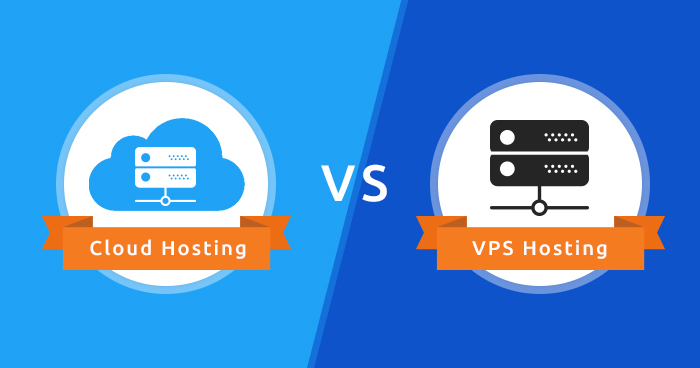Cloud servers are similar to a VPS hosting environment. The key difference is that instead of having a single server that’s dedicated to your site (as is the case with VPS), the resources are spread out amongst a bunch of different physical machines.
Virtual Private Server (VPS) Hosting
VPS in simple terms is where a single physical server is divided into smaller virtual servers using a virtualization technology. Each one of these virtual servers acts as its own dedicated server environment. For that purpose, VMWare and HyperV (hardware hypervisors) are the two technologies that actually made a mark.
Since you have your own dedicated section of the server, you have your own set of allocated resources and can customize and configure your server partition exactly the way you want. Plus, there’s no exchange of data or file access between accounts on the VPS server.
Who Should Use VPS Hosting?
Virtual Private Server hosting is great for users looking for more control over their website, with the technical skills to set up a customized environment.
Pros and Cons of VPS Hosting
Pros, It offers flexibility along with complete control/root access to the server. The user can modify the settings on server to adjust it according to the requirements. Cons, If there is any problem with the VPS server and needs maintenance or rebooting or has a hard drive error then all accounts hosted on it would face downtime.
Pros, though a shared environment, VPS clients can take leverage of dedicated environments with specific resource allocations. Cons, despite the inheritance of characteristics of a dedicated server, computing resources of the physical server are still distributed across VPS accounts. Hence, ill operations run by a neighboring account can pose an impact on your server.
Pros, Unless it a hardware failure, any virtual server if affected and exposed to downtime, the other servers aren’t affected. Cons, though one can choose an operating system (OS), only one OS can run on each physical server.
Pros, As users get root access to the particular server, one can choose the operating system and install any required software which makes it quite easy to manage the VPS. Cons, Storage space on each server is limited and so when your VPS reaches the maximum capacity, arrangements for additional space or a migration to a new hardware remains the only option. Which again means downtime.
Cloud Hosting
Cloud hosting utilizes a network of virtual servers, which use resources from a network of physical servers. Instead of having all of your site’s files on a single physical server, they’re spread out among an entire network of servers.
With cloud hosting, you have a network of potentially unlimited virtual machines. All of these virtual machines rely upon an underlying network of physical servers. With all of these virtual machines connected together, you’re basically creating one massive VPS.
With a cloud hosting platform, you benefit from the use of multiple servers, so you have more available resources at your disposal. You can increase the power of your server whenever you’d like to meet varying traffic needs. While cloud hosting offers more flexibility than VPS hosting, it doesn’t allow for quite as much customization.
Who Should Use Cloud Hosting?
Cloud hosting is a great choice for website owners who need the flexibility that cloud hosting provides, to enable increased performance to meet surges in traffic.
Pros and Cons of Cloud Hosting
Pros Cloud hosting offers greater flexibility as it is extended to multiple physical machines pooling in their resources into one. The storage space, as well as the other resources, can be scaled up/down as per requirements.
Pros, If any physical server runs down or fails, the virtual machines or VM’s are transported automatically to other servers within the same cluster, avoiding the downtime resulting in the cloud hosting to be more reliable.
Pros, Though the load of other cloud customer increases, the computing resources — RAM, CPU performance and bandwidth being pooled-in by multiple physical servers — results in a near unlimited supply of resources.
Pros, The cloud server is easier to suffice custom requirements. It means, clients can choose the OS, firewall, control panels and other applications.
Cons There’s only one disadvantage of cloud in comparison to a VPS: it’s little more expensive.
As a matter of fact, both the solutions have been popular despite their individual benefits and demerits. Where VPSs were opted by websites for whom scalability and uptime weren’t much of a concern, while on the other hand, the sites that did require them opted for a cloud solution. A few service providers even offered a pay-per-use billing model in Cloud, where users would only pay of the resources that their sites/applications have actually used.



Add Comment